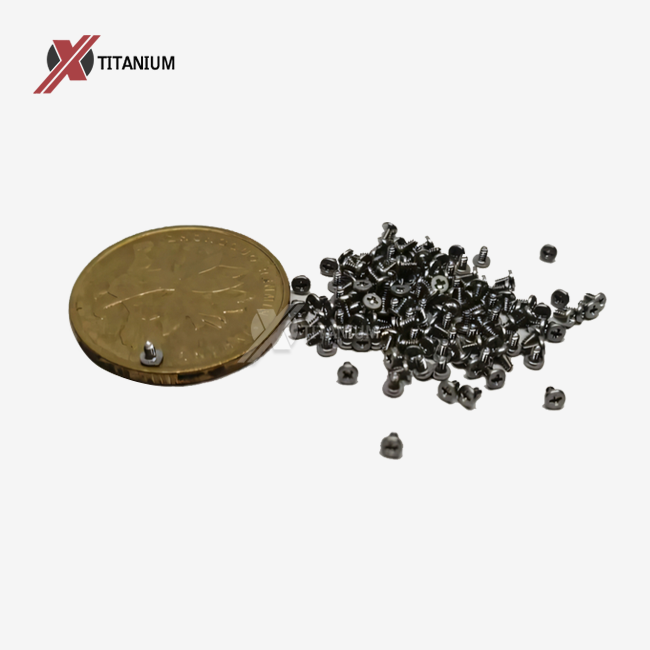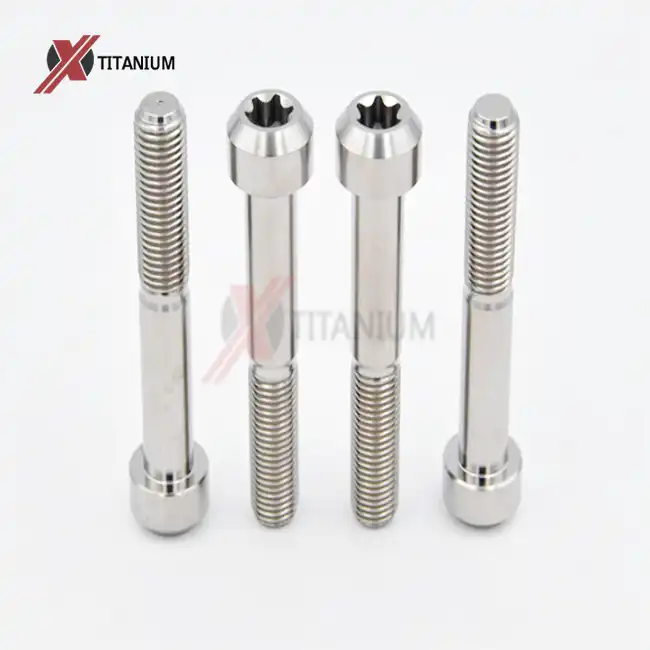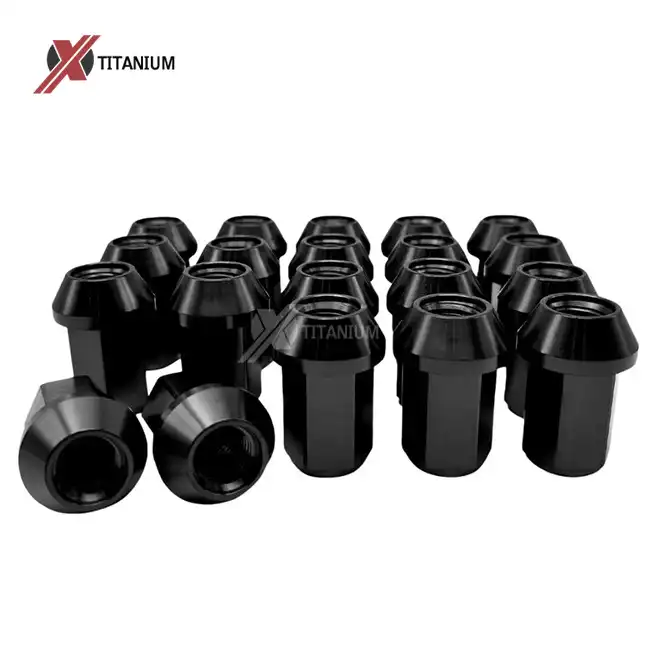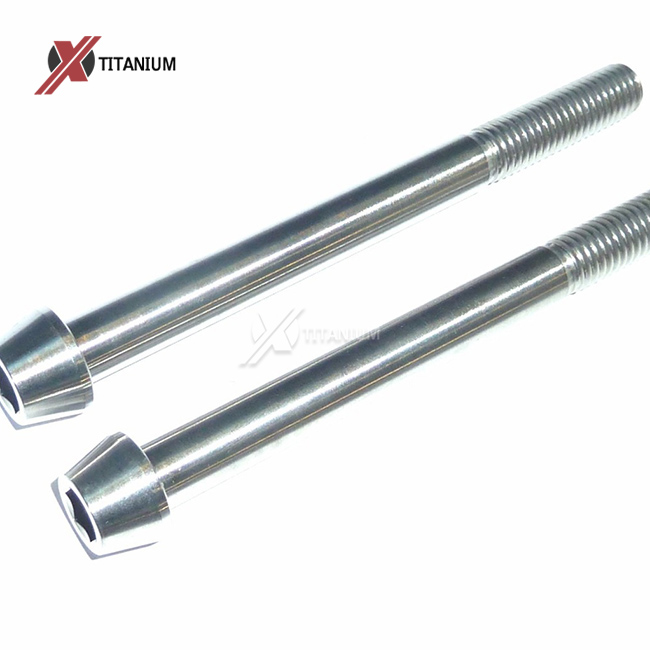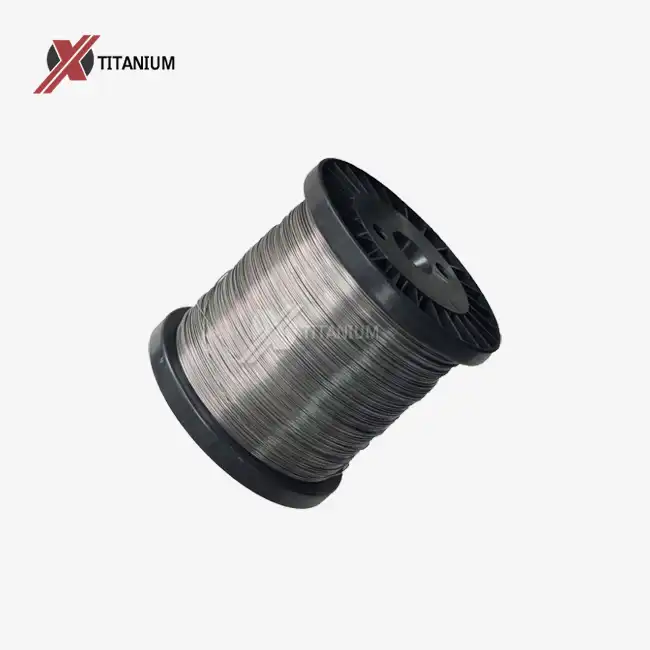Understanding the Fatigue Properties of Titanium Micro Screws
The Science Behind Titanium's Fatigue Resistance
Titanium micro screws owe their exceptional fatigue resistance to the unique microstructure and properties of titanium alloys. The hexagonal close-packed (HCP) crystal structure of titanium contributes to its high strength and resistance to crack propagation. Moreover, the formation of a stable, self-healing oxide layer on the surface of titanium components provides an additional barrier against fatigue-inducing factors like corrosion and surface damage.
The fatigue behavior of titanium micro screws is characterized by a high endurance limit, which is the stress level below which the material can theoretically endure an infinite number of stress cycles without failure. For Ti-6Al-4V, a commonly used alloy for micro screws, the endurance limit is typically around 50-60% of its ultimate tensile strength. This high endurance limit translates to exceptional long-term performance in applications where cyclic loading is a concern.
Comparative Fatigue Performance of Titanium Micro Screws
When compared to other materials commonly used for micro screws, titanium alloys demonstrate superior fatigue resistance. For instance, while stainless steel micro screws may begin to show signs of fatigue after 10^5 to 10^6 cycles, titanium micro screws can often withstand 10^7 cycles or more under similar stress conditions. This enhanced fatigue life is particularly crucial in medical implants, where the screws must endure years of cyclic loading from daily activities.
The fatigue strength ratio, which compares the fatigue strength to the ultimate tensile strength, is another metric where titanium excels. Titanium alloys typically have a fatigue strength ratio of 0.4 to 0.5, compared to 0.3 to 0.4 for many steels. This higher ratio indicates that titanium micro screws can withstand a larger proportion of their ultimate strength under cyclic loading conditions.
Factors Influencing the Fatigue Resistance of Titanium Micro Screws
Alloy Composition and Heat Treatment
The specific titanium alloy used in micro screw production plays a crucial role in determining its fatigue resistance. While commercially pure titanium offers good fatigue properties, advanced alloys like Ti-6Al-4V (Grade 5) provide even better performance. The addition of alloying elements like aluminum and vanadium creates a two-phase microstructure that enhances both strength and fatigue resistance.
Heat treatment processes can further optimize the fatigue properties of titanium micro screws. Solution treatment followed by aging can refine the microstructure, leading to improved fatigue resistance. For example, the β-annealed condition in Ti-6Al-4V can result in a 15-20% increase in fatigue strength compared to the mill-annealed condition.
Surface Condition and Manufacturing Processes
The surface condition of titanium micro screws significantly impacts their fatigue performance. Surface defects, such as scratches or machining marks, can act as stress concentrators and initiation sites for fatigue cracks. Consequently, manufacturing processes that produce a smooth surface finish, such as electropolishing or precision machining, can enhance fatigue resistance.
Innovative manufacturing techniques like additive manufacturing (3D printing) are opening new possibilities for optimizing the fatigue performance of titanium micro screws. These methods allow for the creation of complex internal structures and tailored surface textures that can further improve fatigue resistance. However, careful post-processing and quality control are essential to ensure consistent performance.
Applications Leveraging the Fatigue Resistance of Titanium Micro Screws
Medical Implants and Devices
The biomedical field extensively utilizes titanium micro screws, capitalizing on their exceptional fatigue resistance and biocompatibility. In orthopedic and dental implants, these screws must withstand millions of loading cycles over many years without failure. The high fatigue resistance of titanium ensures the long-term stability and success of these implants, reducing the need for revision surgeries and improving patient outcomes.
Titanium micro screws are also crucial components in various medical devices, such as pacemakers and neurostimulators. In these applications, the screws' ability to resist fatigue under constant vibration and cyclic loading is paramount for ensuring device longevity and patient safety.
Aerospace and High-Performance Engineering
The aerospace industry relies heavily on titanium micro screws for their exceptional strength-to-weight ratio and fatigue resistance. These miniature fasteners are used in critical components of aircraft engines, control systems, and structural elements where reliability under high-stress, high-cycle conditions is essential. The ability of titanium micro screws to maintain their mechanical properties at elevated temperatures further enhances their suitability for aerospace applications.
In high-performance engineering fields, such as Formula 1 racing and precision instrumentation, titanium micro screws offer unparalleled performance. Their resistance to fatigue ensures that components remain secure and functional even under extreme vibration and cyclic loading conditions, contributing to both safety and performance in these demanding environments.
Conclusion
Titanium micro screws demonstrate remarkable fatigue resistance, making them indispensable in applications where long-term reliability under cyclic loading is crucial. Their unique combination of high strength, low weight, and exceptional fatigue properties sets them apart from conventional fastener materials. As manufacturing techniques continue to evolve, the potential for further enhancing the fatigue performance of titanium micro screws promises even more innovative applications across various industries.
For more information about titanium micro screws and their applications, please contact Baoji Chuanglian New Metal Material Co., Ltd. at info@cltifastener.com or djy6580@aliyun.com. Our team of experts is ready to assist you in finding the perfect titanium solution for your specific needs.
